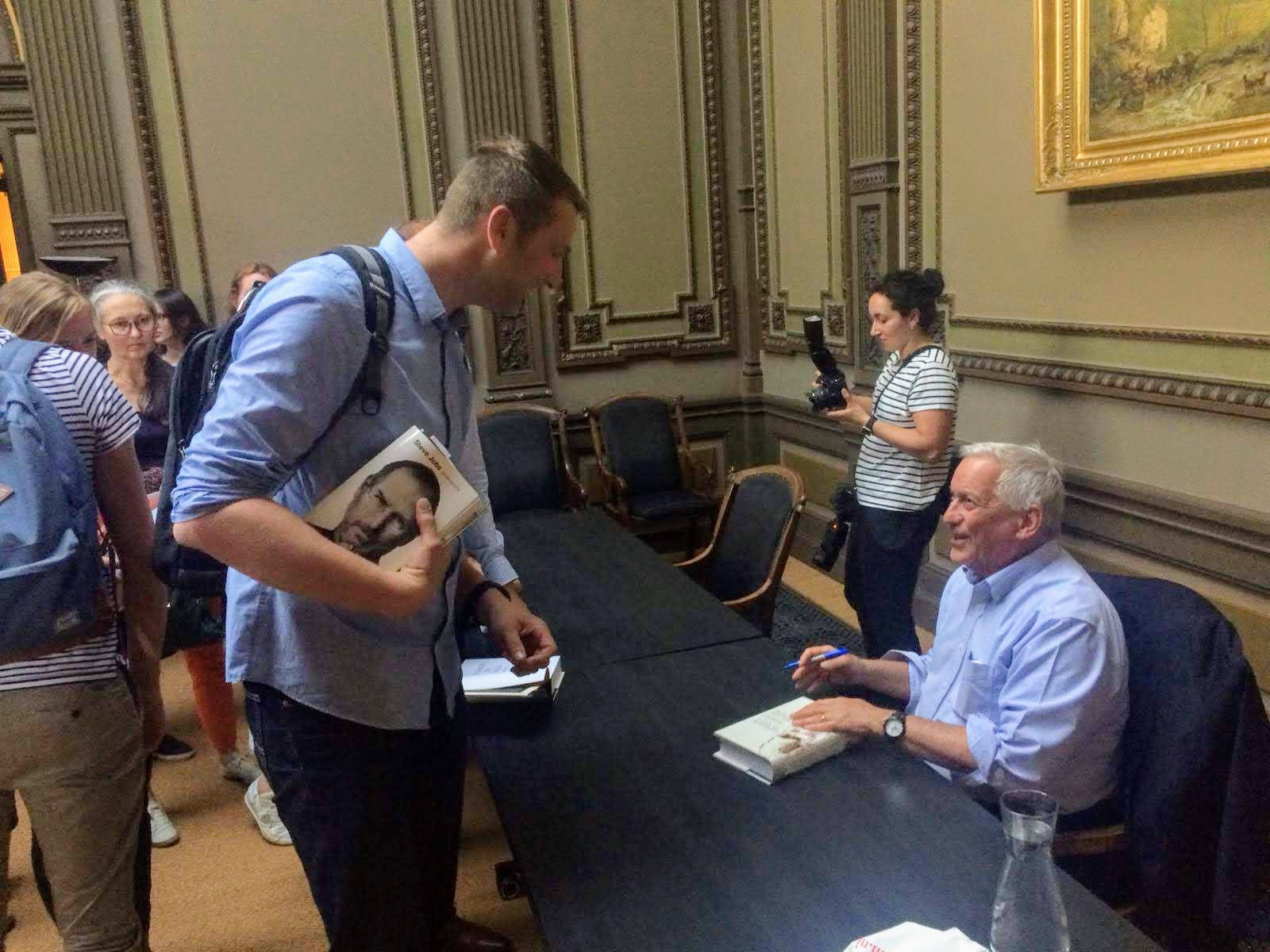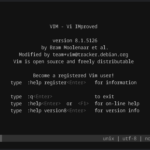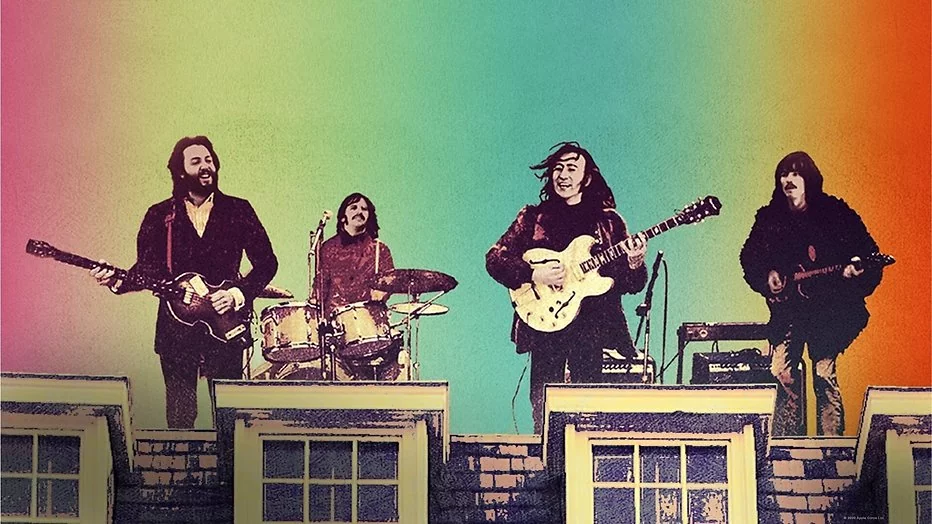In 2018 I read 24 books (25th in progress). Here is a list of 10 books that stood out in one way or another. Some are recommendations.
Besides music biographies, computer history and management/business books, I tend to read bestseller novels from a few years ago. By then the crowd has decided what’s good and thrift stores will carry a lot of these books — which can be an indication of something worth reading.
Yes, I read on paper. Screen reading is a different experience for me.
The first couple of books on the list are fiction, the rest are non-fiction. Otherwise the list is in no particular order. Spoilers ahead.
The Underground Railroad – Colson Whitehead
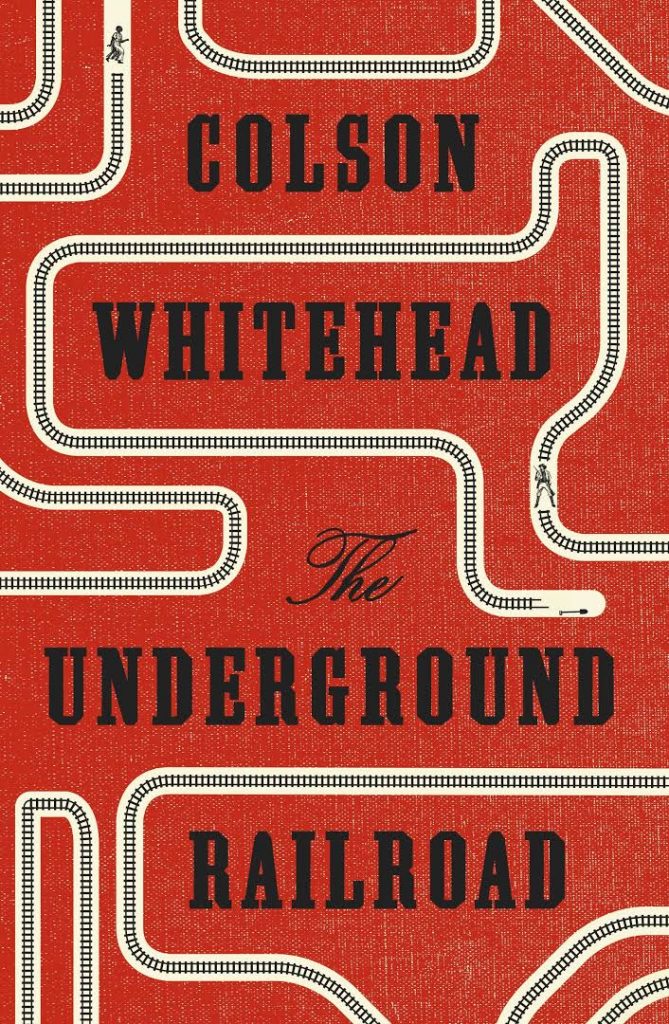
This Pulitzer price winning book will get under your skin. Everything you read about it is true. It is disturbing and unsettling in every way. It is a book about slavery, and the structural dehumanization and killing of millions of Africans over hundreds of years. And it will shed light on the completely hopeless situation of entire generations of humans. But it is also about redemption and the human spirit (and sadly not just the good parts).
The after-the-fact writing style Whitehead uses is very effective. For instance he will write a build up to a rape scene, so you know it’s coming, and there’s nothing you can do. But when it does, the first sentence is of what happened after (“the women of the camp stitched her up”). So without actually describing the event he will make your heart sink. He uses this technique quite a few times, to great effect. I could write a lot more about this book, but just know that this book will not leave you and it will change how you look at things.
The book blends realism with allegory. So even though it is a fictional story (there was of course no literal underground railroad), large parts are based on extensive research of real events. Therefore this book greatly upset my understanding of the history of the USA and slavery.
The Kite Runner – Khaled Hosseini
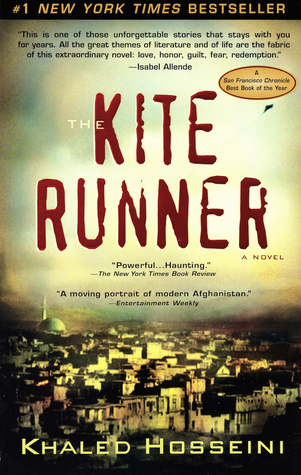
The Kite Runner is another book that will get under your skin. It is a universal story of the friendship of two boys. About their relationship and the unselfishness and sacrifice. What makes this story extra remarkable is how the writer interweaves the setting (the nature, the culture, the city) with the story. He makes them work really well together. In doing so he not only underscores the idea that people, and therefore their choices, are a product of their environment. But also, this writing style will make you feel as if you are running your kite with the two boys through the crowded and narrow streets, leaving a dust trail while the hot sun is beating on you. A small part of the book near the end I thought was a bit far-fetched, but that might just be me. All in all it’s one of the best books I read this year.
I’ll Steal You Away – Niccolò Ammaniti
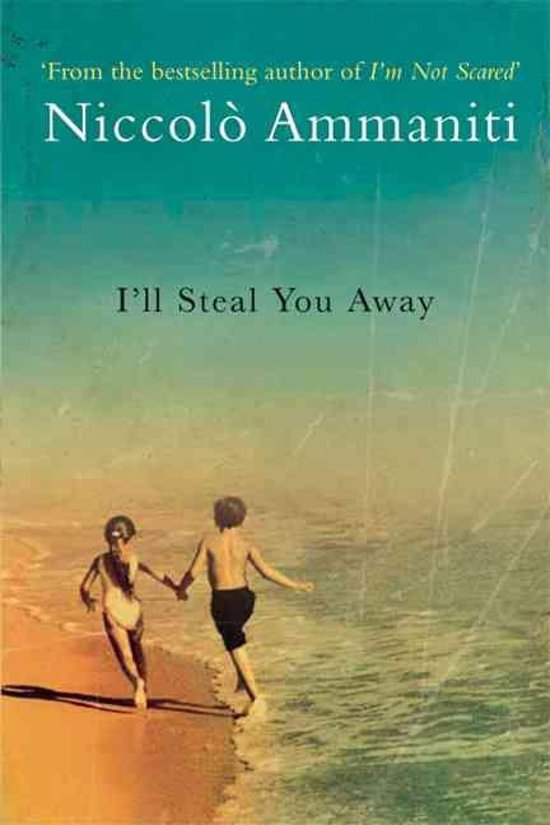
This book is in a lot of Dutch thrift stores. And for good reason, because the writing talent of Ammaniti is evident. Of all books, this book made me laugh out loud the most (I mean, the donkey on a catapult). Ammaniti tells imaginative and captivating but still recognizable stories, that are great fun to read. Even though he adds some unnecessary coarse details in my opinion. For good measure, I also read ‘I Am Not Afraid’ by Ammaniti to see if it was a one-off. But it is not. You can probably pick up any Ammaniti book and enjoy yourself. Overall I would say his writing style feels like a snack instead of a wholesome meal. But sometimes that’s what you want.
The Dinner – Herman Koch
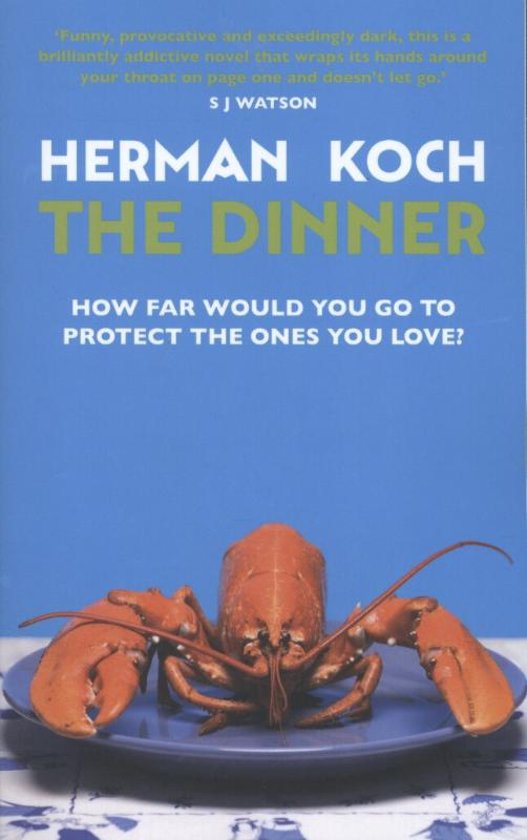
And when you crave a snack, I can also recommend the Dinner. Many thrift stores’ bookshelves bend by the weight of the amount of copies of this book. It was one of the most sold books ever in the Netherlands. And I enjoyed reading it. It is written in such a way that you can tell the writer really carefully crafted sentences and chapters to keep the flow going. But after finishing I do remember some of the characters, but I struggle to remember the main plot reveal. But that is because the plot is secondary, this book is all about dialogue and human interaction which are both masterfully written down.
Man in Black: His Own Story in His Own Words – Johnny Cash

This bio is from 1975, when Johnny Cash already had quite the life and a biography was well in order. We now know he would also have another life, artistically, in the nineties. So reading this book from a 1975 perspective was great. Cash, of course, seems like a man of few words. But the words are heartfelt and honest, and they shine through the paper. You can sometimes just hear the sentences in his voice. Reading this book left me with a deeper understanding of the man and his thoughts and his faith.
But as with most (music) autobiographies I’ve read, this one also falls into the trap of spending a disproportional amount of pages on more recent, less relevant events. Neil Young’s bio for instance talks way too much about his digital music player. And Cash dedicates a lot of time to the charities he runs. That’s probably fine when you read it in 1975 but 43 years later, that’s not what people remember him for and readers will have little connection to something that was topical then.
The Soul of a New Machine – Tracy Kidder
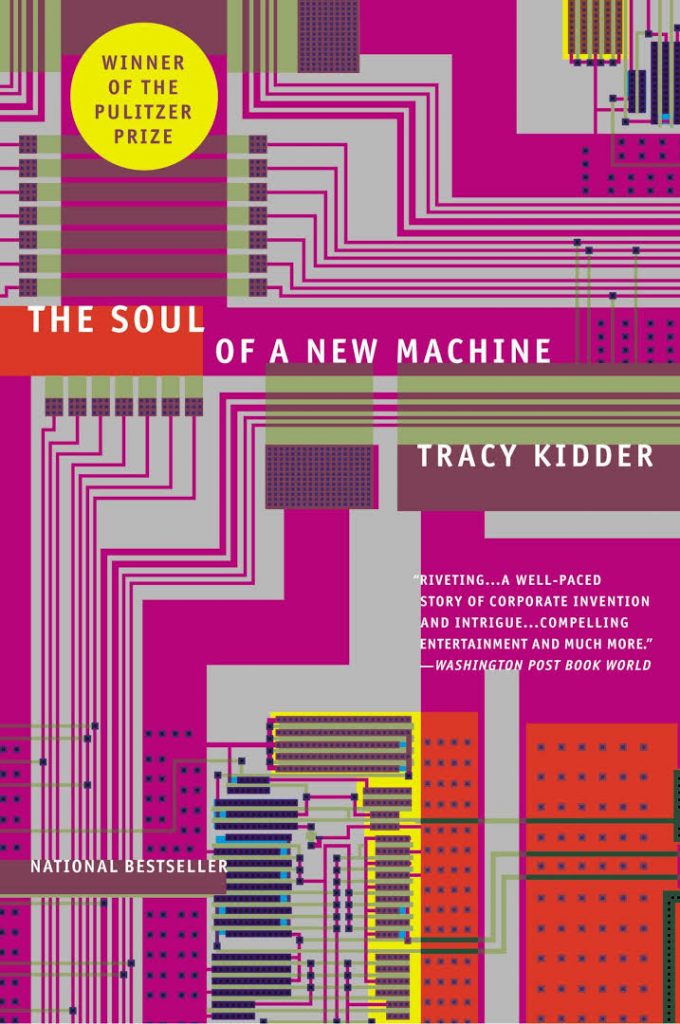
I’ve written a blog specifically on this book. I can think of no other book that blends two of my favorite subjects, management and computer history, in such an exciting manner that you would think it is fiction, when in fact it is not.
The Phoenix project – Gene Kim, George Spafford, and Kevin Behr
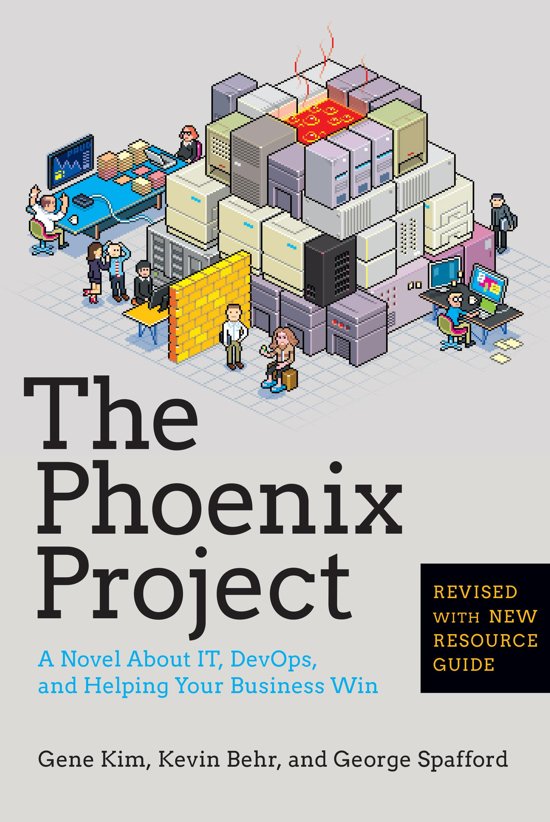
And that can also be said about this book. In a different way, it is fiction, but it is also not. Read my blog post about it here.
How Google Works – Eric Schmidt
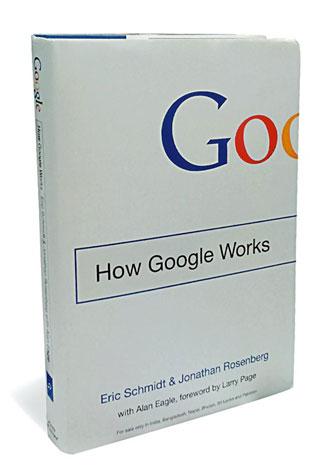
I would say this book was written when Google was at its peak (2014). So I couldn’t help but compare what I read to what we know now. And that is not always a positive story. Therefore this book sometimes struck me as being a bit too much self-congratulatory and trying to be funny when clearly they are not telling the whole story. So it deliberately withholds information, which of course makes sense for a billion dollar company, but you can feel tricked as a reader. They only tell you what they want to tell you. And if you’re fine with that there are still quite a few really good lessons in here so I would certainly recommend it. Also, I am still rooting for Google to not be evil.
Zero to One – Peter Thiel
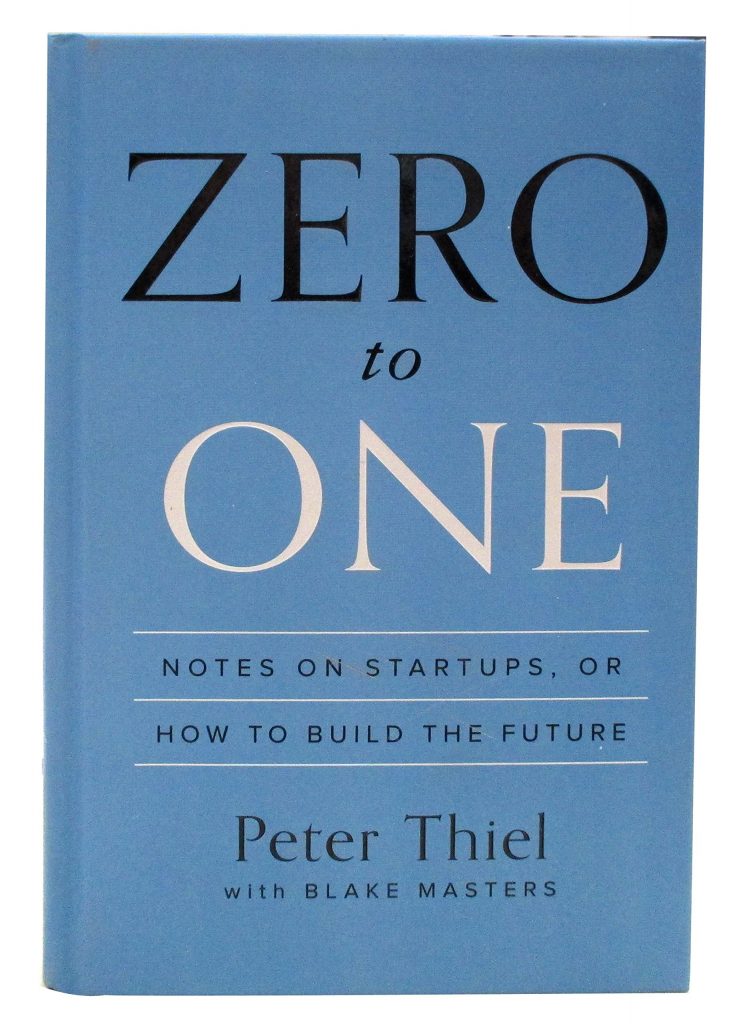
I reread this book this year, because I think it holds good reminders of how some things really work. Thiel himself has become kind of a controversial figure, but this book has ideas and asks questions that help you make see things clearer. So rereading it once in a while is recommended.
The Innovators – Walter Isaacson
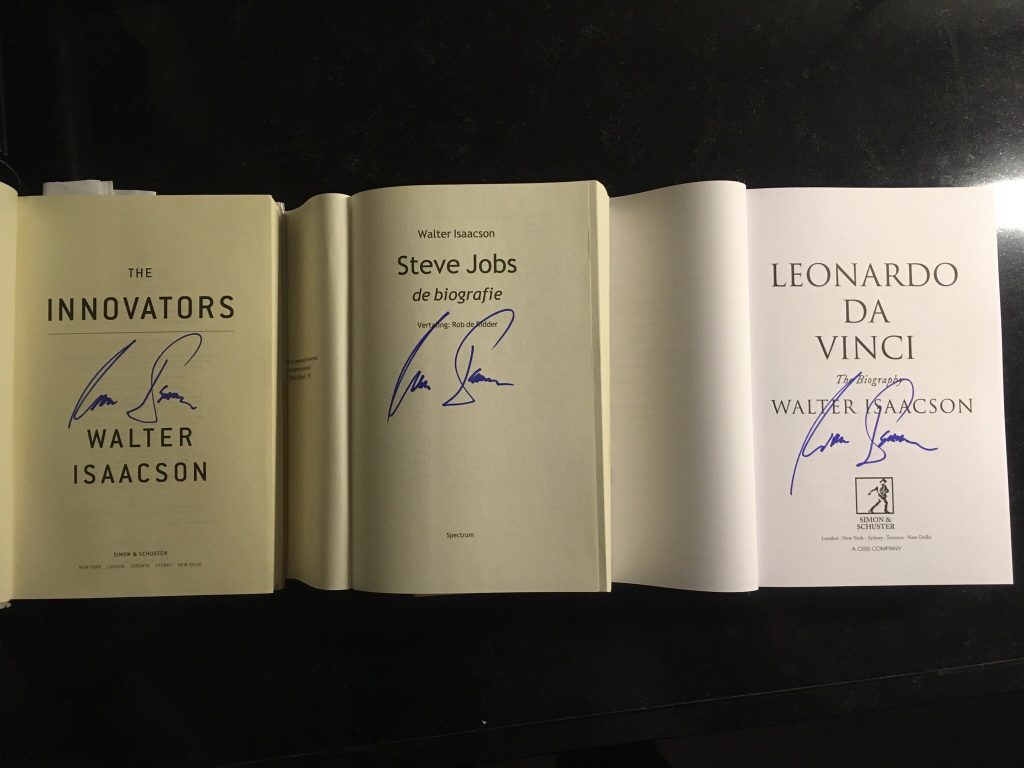
I reread 4 books in 2018, including Zero to One, the Rider, the Old Man and the Sea. These three I’ve read multiple times already, but this was my second read through of the Innovators. It is the near complete story of the age of computers. It’s my favorite kind of subject by my favorite biographer. I love it.
This year I had a chance to meet, and have my copy of the Innovators signed by, Walter Isaacson himself, which was a lot of fun. I also picked up of his latest book on Leonardo da Vinci, which I plan on reading of course.
About reading
When you consider that tens of thousands of new books are published each year, reading around 25 books per year is not a lot. The books combine for a total of 6,123 pages, so averaging around 250 pages per book. But more importantly this comes down to reading around 16 pages per day. Now that does not sound like a lot does it? So maybe there is still room for improvement.
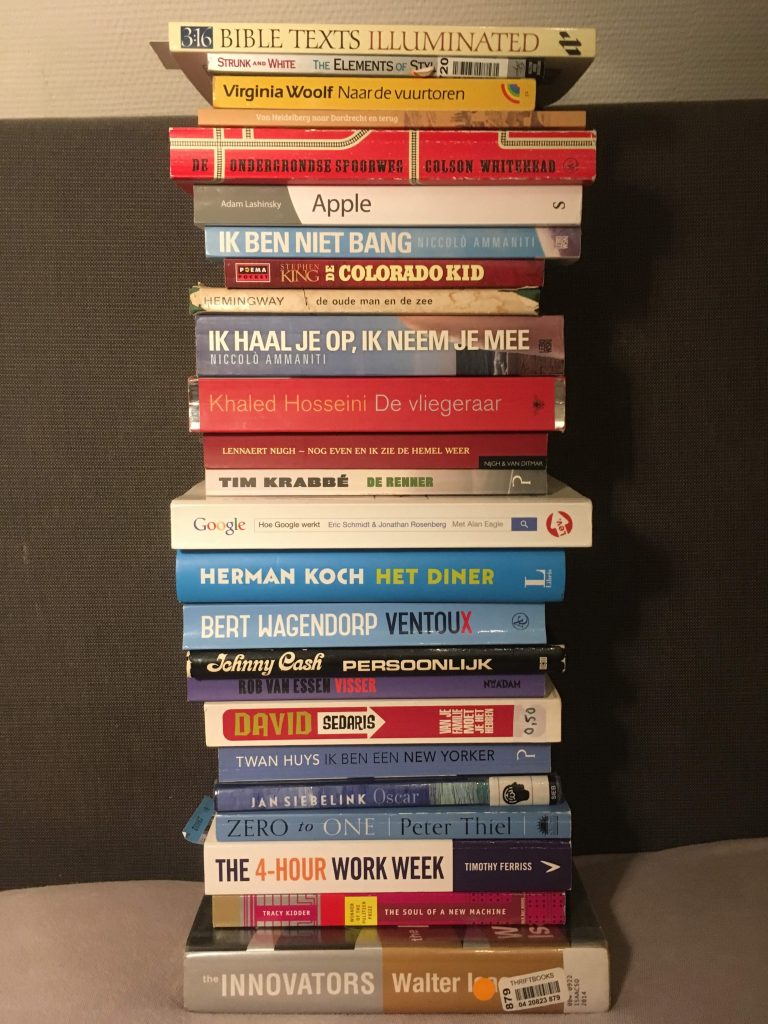
Art Garfunkel has a log of every book he ever read. Over 50 years of reading and still he ‘only’ read around 1300 books. Which is impressive, but of course still very little compared to the millions of books available. So when you can only read so many books, you have to be picky. But I am always looking for tips!
I am looking forward to reading ‘How the Internet Happened’ and see how it compares to or complements the Innovators. And a lot of people seem to recommend Bad Blood because it would reveal a lot about Silicon Valley culture. Both books came out recently.
So, any other books I need to read?
